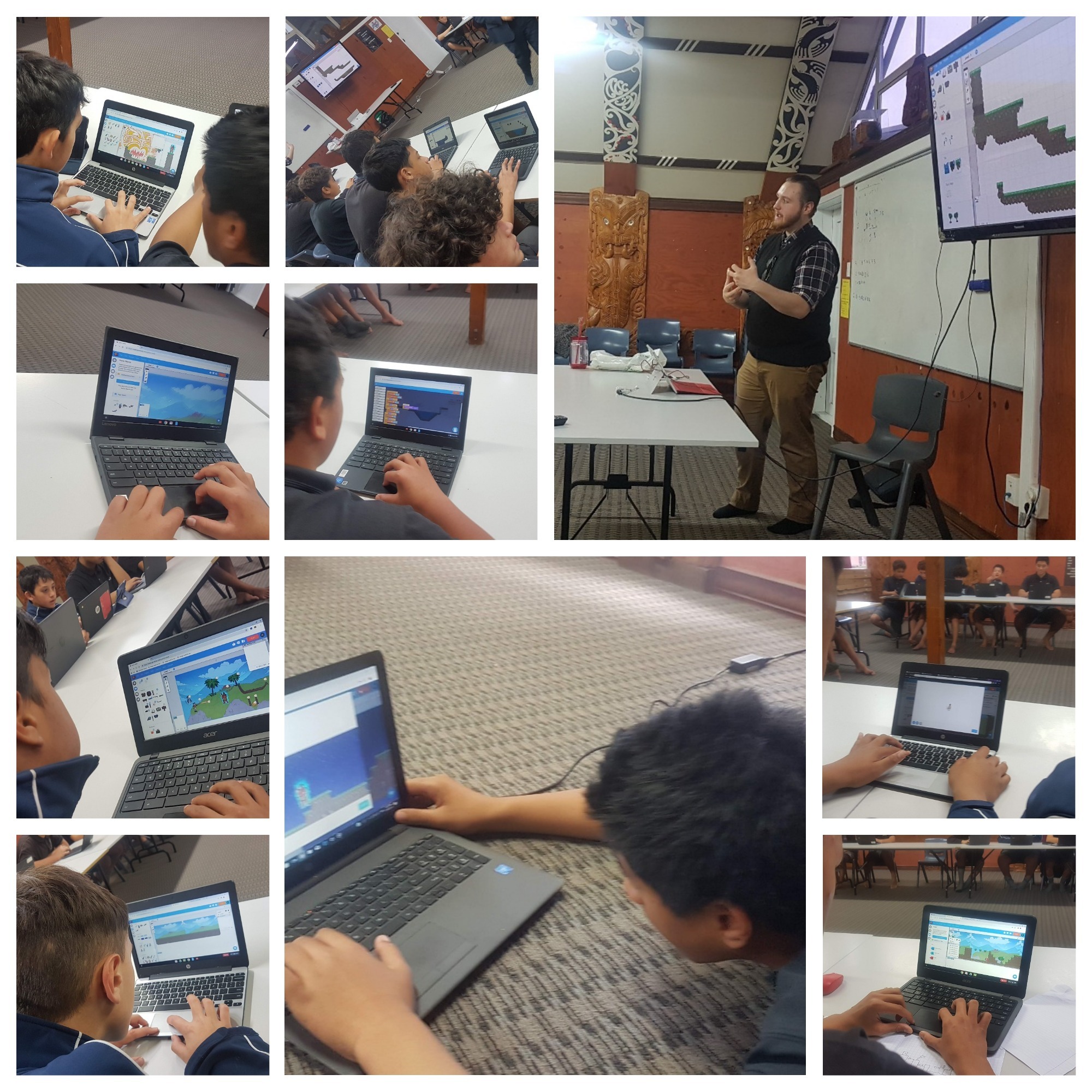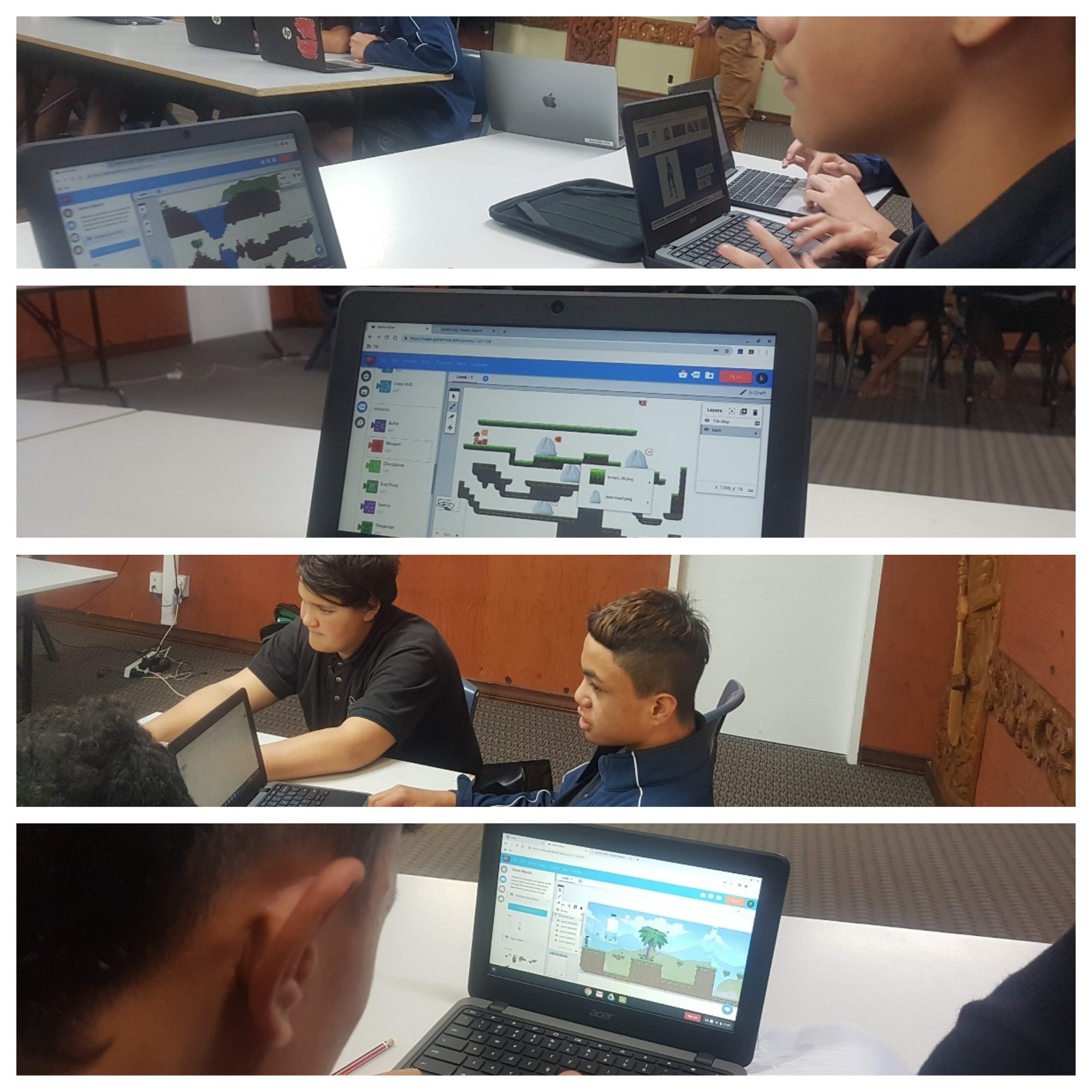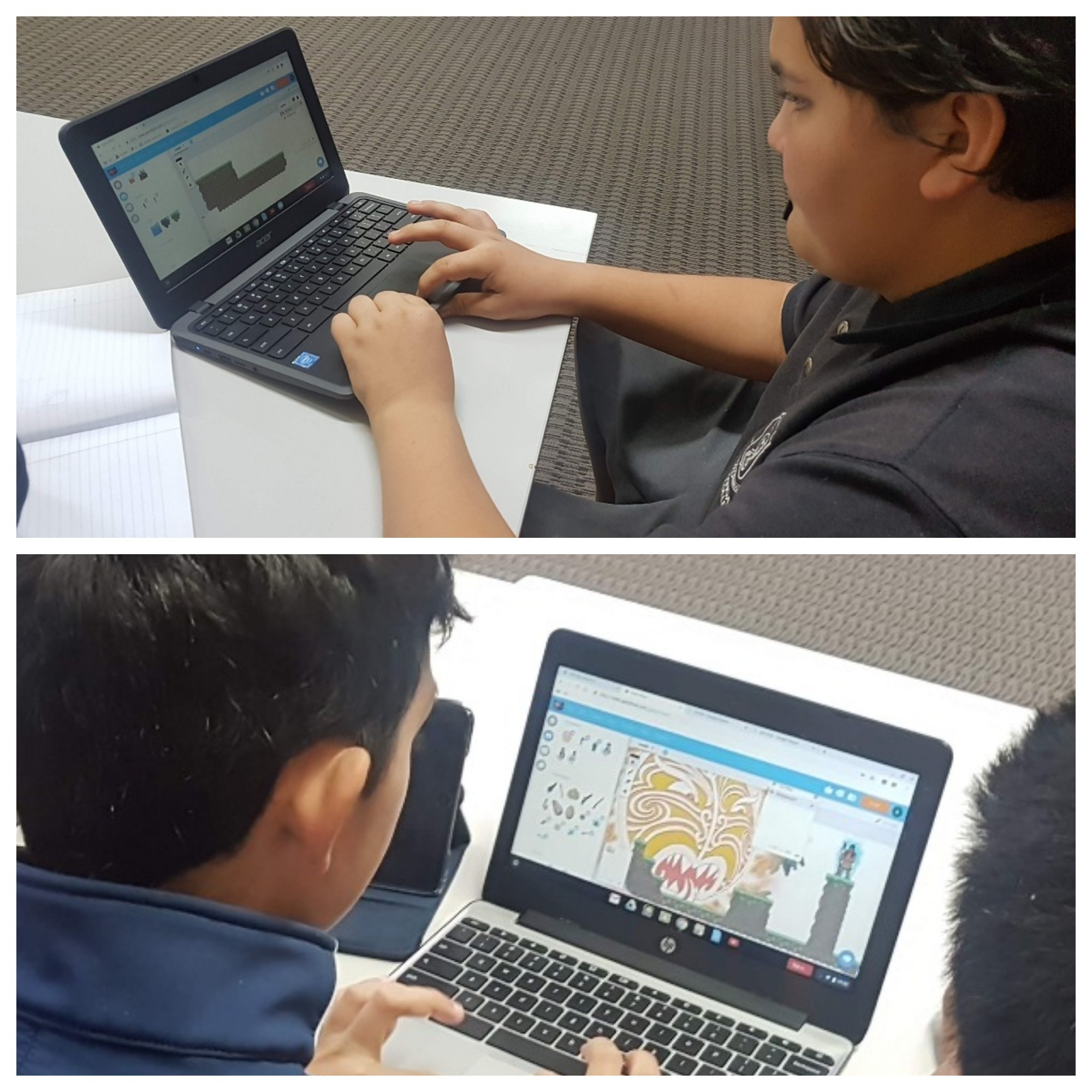Coding and Gaming -Tauranga
Tauranga boys were diligent, focused and determined as they worked toward building their first plastic pollution game. The Telegraph News, Science 2019 reports that ‘the average person now ingests five grams of plastic each week, the equivalent of a credit card, a new report by WWF has found. Researchers found that people are consuming up to 102,000 tiny pieces of plastic of less than 1mm - 250 grams each year - with nearly 90 per cent coming from water, both bottled and tap’. Creating a game on plastic pollution helps to raise awareness on the need for more recycling, reusing and reducing the use of plastics across our communities.
PTC in collaboration with Dan and Dave from GAMEFROOT organised these series of workshops to empower our youth with the digital competences and coding skills necessary for them to secure future jobs. Ministry of Education reports that ‘coding is an important and necessary future-focused literacy. It is included as part of the school curricula in many countries who recognise this. Coding helps to create our digital world and as our world becomes more digital, coding is becoming more of an in-demand and employable skill’.
Gamefroot Game Maker workshops enabled rangatahi to utilise a combination of techniques to build a basic game world that drew upon pre-existing terrain and characters; that engaged youth in planning and strategising and empowered youth to utilise interactive objects scripted with intuitive drag-and-drop code block editor.
The development of such twenty-first century skills, such as problem solving, critical thinking, collaboration and design-system thinking are all enhanced in building a game that raises awareness of plastic pollution. Having conducted their plastic study earlier in the term, our young scientists now needed to think through the problems of plastic pollution, set up challenges, devise levels of complexity and foster wins!
The beauty of the day however was that it occurred in the Aronui - the name placed on the whare wānanga (house of learning) at the College and the name of one of the three baskets of knowledge. Within Aronui, -this basket consists of knowledge of aroha (love), rongomau (peace) and ngā mahi toi (the arts and crafts) which benefit Papatūānuku (the Earth and all living things). It is also the basket of tikanga/kawa (ritual), kōrero (philosophy) and te ira tangata (humanities). Te reo Māori, tikanga (customs and traditions) and whanaungatanga (camaraderie) are intrinsic to the philosophies of Aronui and these were excellently demonstrated by our future innovators throughout the workshop.




